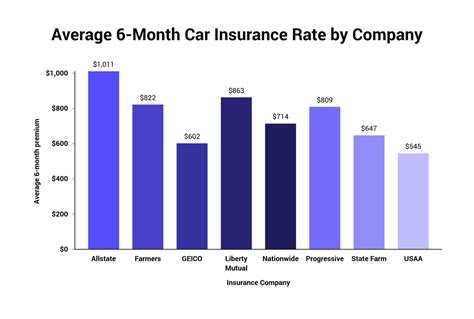Are Employers Required To Offer Health Insurance

In the United States, the question of whether employers are required to offer health insurance to their employees is a complex one, as it involves navigating a web of federal and state regulations, as well as the evolving landscape of healthcare policies. While there are certain mandates in place, the specifics can vary significantly depending on factors such as the size of the business, the industry, and the location.
Federal Requirements for Employer-Provided Health Insurance

At the federal level, the Affordable Care Act (ACA), also known as Obamacare, introduced significant changes to the healthcare system and imposed certain obligations on employers.
The Affordable Care Act (ACA)
The ACA mandates that employers with 50 or more full-time equivalent employees (FTEs) must offer minimum essential coverage to their full-time employees and their dependents. This is known as the employer mandate or employer shared responsibility provision. If an employer fails to provide this coverage and any of its full-time employees obtain subsidies through the Health Insurance Marketplace, the employer may face a penalty. However, it's important to note that the penalty has been set to zero as of 2019, effectively making the mandate optional for employers.
For employers with fewer than 50 FTEs, there is no federal mandate to provide health insurance. However, these employers are still encouraged to offer coverage to their employees, as it can be a valuable recruitment and retention tool.
| Employer Size | Federal Mandate |
|---|---|
| 50+ FTEs | Offer minimum essential coverage to full-time employees and dependents. |
| Fewer than 50 FTEs | No federal mandate, but encouraged to offer coverage. |

Other Federal Laws and Regulations
In addition to the ACA, there are other federal laws that impact employer-provided health insurance:
- Employee Retirement Income Security Act (ERISA): ERISA sets standards for private-sector pension and health plans. It requires employers who offer health plans to provide detailed information about the plan's benefits and funding to their employees.
- Health Insurance Portability and Accountability Act (HIPAA): HIPAA ensures that employees who change or lose their jobs can maintain their health insurance coverage. It also prohibits discrimination based on health status and limits exclusions for pre-existing conditions.
- Consolidated Omnibus Budget Reconciliation Act (COBRA): COBRA provides a way for employees and their families to continue their employer-sponsored health coverage for a limited time after certain life events, such as job loss or divorce.
State Requirements and Variations

While federal laws provide a baseline for employer-provided health insurance, states have the authority to implement additional requirements. As a result, the landscape of employer-mandated health insurance varies significantly across the United States.
State-Level Mandates
Some states have enacted laws that require employers to offer health insurance to their employees, regardless of the employer's size. For example:
- Massachusetts: Massachusetts has a mandate known as Chapter 58, which requires employers with 11 or more full-time equivalent employees to provide health insurance coverage or pay an assessment to the state.
- New Jersey: New Jersey's Fair Benefits Law requires employers with 50 or more full-time employees to provide health insurance coverage to their employees.
- Vermont: Vermont's Single-Payer Health Care Act aims to provide universal health coverage. While the full implementation is still in progress, it includes a mandate for employers to contribute to the system.
It's important to note that state laws can change, and some states are considering or have already implemented legislation to further expand access to employer-provided health insurance.
State-Level Incentives and Programs
In addition to mandates, some states offer incentives or programs to encourage employers to provide health insurance:
- California: California has a program called Healthy Families Program, which provides low-cost health insurance to children whose families earn too much to qualify for Medi-Cal but cannot afford private insurance. This program is funded by a combination of state and federal dollars, as well as employer contributions.
- New York: New York offers the Small Business Health Options Program (SHOP), which provides tax credits to small businesses that offer health insurance to their employees. The program aims to make health insurance more affordable for small businesses and their employees.
Employer Considerations and Benefits
While there may not be a universal requirement for all employers to offer health insurance, providing such benefits can have several advantages for both the employer and the employees:
Attracting and Retaining Talent
Health insurance is a highly sought-after benefit by employees. Offering competitive health plans can make an employer more attractive to potential hires and help retain current employees. In a tight labor market, this can be a significant advantage.
Improved Employee Health and Productivity
Access to health insurance encourages employees to seek preventative care and manage chronic conditions, leading to improved overall health. This, in turn, can result in increased productivity and reduced absenteeism due to illness.
Cost Savings
While providing health insurance incurs a cost for employers, it can also lead to long-term cost savings. Healthy employees are more productive, and offering insurance can reduce the risk of costly emergency room visits and hospitalizations. Additionally, some states offer tax incentives or credits for employers who provide health coverage.
Future Implications and Trends
The debate surrounding employer-provided health insurance is ongoing, and future developments may influence the requirements and incentives for employers. Here are some potential future implications and trends:
Healthcare Reform
Proposals for healthcare reform, such as the expansion of Medicare or the implementation of a single-payer system, could significantly impact the role of employer-provided health insurance. These reforms may reduce the need for employers to provide coverage, or they may alter the landscape entirely.
Telehealth and Remote Work
The rise of telehealth services and remote work arrangements may impact the traditional employer-employee relationship when it comes to health insurance. Employees working remotely may have different healthcare needs and preferences, and employers may need to adapt their health insurance offerings to accommodate these changes.
Rising Healthcare Costs
The continuous rise in healthcare costs is a significant concern for both employers and employees. Employers may face increasing pressure to offer more comprehensive health plans or explore cost-saving measures, such as health savings accounts (HSAs) or high-deductible health plans (HDHPs) paired with HSAs.
Wellness Programs and Incentives
Many employers are increasingly focusing on wellness programs and incentives to encourage healthy behaviors among their employees. These programs can help reduce healthcare costs and improve employee satisfaction. As these initiatives gain popularity, they may become a standard feature of employer-provided health insurance plans.
Conclusion

The question of whether employers are required to offer health insurance is complex and multifaceted. While federal laws provide a baseline, state laws and incentives play a significant role in shaping the landscape of employer-provided health insurance. As the healthcare system continues to evolve, employers must stay informed and adapt their strategies to meet the needs of their employees and remain competitive in the job market.
Frequently Asked Questions
What is the penalty for employers who do not offer health insurance under the ACA?
+As of 2019, the penalty for employers who do not offer minimum essential coverage to their full-time employees is set to zero. Therefore, there is currently no federal penalty for not offering health insurance.
Are there any tax incentives for employers who provide health insurance?
+Yes, some states offer tax incentives or credits to employers who provide health coverage. For example, California’s Small Business Health Options Program (SHOP) provides tax credits to small businesses that offer health insurance to their employees.
What happens if an employee’s dependent wants to enroll in the employer’s health plan but is already covered under another plan (e.g., spouse’s plan)?
+In such cases, the employee’s dependent typically has the option to enroll in the employer’s health plan or remain on the other plan. It’s important for employees to carefully consider the benefits and coverage of both plans to determine which option is most suitable for their needs.



